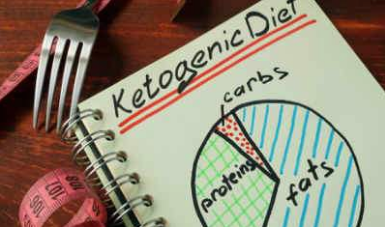The ketogenic or keto diet is responsible for many successful weight loss stories, however, there are also stories that did not go as well as one would hope. For some, they might have started seeing results at first, but nothing further. For others, they might have not seen any kind of result at all.
This can be frustrating. In fact, I have had to try a couple of times before I discovered how to make the keto diet work for me. You see, the keto diet can be very tricky especially in the beginning when you are still trying to see what works best to help you reach full ketosis. Once you are in ketosis, we want to make sure that the results we enjoy remain consistent.
Today’s blog is inspired by one of our readers. She reached out and said how she felt like the keto diet is not working for her. She, then, followed this statement with a very interesting question: “What are the possible reasons the [keto] diet is not working for me?” This led me to the very topic of today’s blog. I would like to share possible reasons the keto diet might not be working for you.
- You’re on Faux Ketosis
So, you’ve been on the keto diet for a week. You’ve been preparing your meals diligently and you are strict with your carb and sugar intake, but how come the diet does not seem to work? The answer is: You might not be in ketosis yet. If you want to know the signs and symptoms of ketosis, you may read about them here.
There are three ways to check if you are in ketosis - urine, breath, and blood testing. Among these three, the most accurate one is blood testing. If you test through urine, there is a urine strip available that will show the ketone concentration in a person’s urine. This may be the easiest and cheapest method of ketone testing, but you must keep in mind that urine tests only measure ketones that are released by the body and has not been used to fuel body function. If you are in ketosis, your body will be using most of the ketones, thus they may not show in your urine. Another way to check if you are in ketosis is through breath testing. This is a little more accurate than urine, but still not the most reliable. This can be done by blowing into a breathalyzer designed to detect ketones that show up in your breath. These ketones will be identified as acetone. The third and most accurate method to check your ketosis status is through blood testing. This is the most dependable way to measure the BHB or Beta-hydroxybutyrate levels of a person. Beta-hydroxybutyrate or BHB is the most abundant ketone that comes from fats. This is the most precise method because you cannot alter the results as it comes straight from the blood.
So, before you think that the keto diet is not working for you, you must make sure that you are in ketosis in the first place.
- You’re Not Eating Right
The key to the keto diet is calorie deficit, but this does not mean that you have to starve yourself. Those are two VERY different things. Remember that you can create a calorie deficit and still be satisfied with what you eat. There are satiating fats that you must incorporate into your diet.

Heard from the grapevine that you need to stay away from protein to reach ketosis? See, it has been said that excess protein triggers gluconeogenesis, the production of glucose from non-carb sources, that will lead to lowering ketone levels. This is not true. In fact, gluconeogenesis is important to maintain ketosis because it makes the cells that do not utilize ketones, like red blood cells, work. GNG also regulates blood sugar levels to make sure that they are in a healthy range.
Another mistake people make when doing the keto diet is thinking they are free to eat fat to their heart’s content. My answer: flat-out NO. eating too much fat will create a surplus of calories that can impede weight loss. Fats have twice the amount of calories as carbs, so you have to watch your fat intake like a hawk.
Lastly, it is possible that the keto diet is not working its magic on you is because you might not be eating enough calories. Yes, you heard that right. There is a reason why it is called the high fat, low-carb diet. It does not say “no carb”. When you don’t eat enough calories, your body’s metabolism slows down in order to conserve your energy. That is why it is important to only create a calorie deficit, so your fat stores can still support your body. Otherwise, you run the risk of your body using lean mass for energy.
- You Work Out Too Much

Wow, what a statement, right? You work out too much! But the thing is, repetitive exercises, like cardio, can increase your appetite because our bodies feel deprived and would want their calories back. Therefore, we tend to overeat after working out totally rendering the work out useless.
- You’re Stressed

If I earn a dollar for every “Don’t stress yourself”, “Calm down”, or “Relax”, I would be a millionaire by now, and I’m sure I won’t be the only one. The keto diet might not work for you if you are stressed. See, when a person is under a lot of stress it produces cortisol, known as the stress hormone. This hormone is the culprit for all the fat stored in our stomach area.
- You’re Not Getting Enough Shut-eye

When we sleep, our hormones are stabilized or balanced. Ghrelin, known as the hunger hormone, and leptin, the satiety hormone, are both affected if you do not get enough sleep. Your ghrelin levels spike, and your leptin levels crash when we are sleep-deprived.

